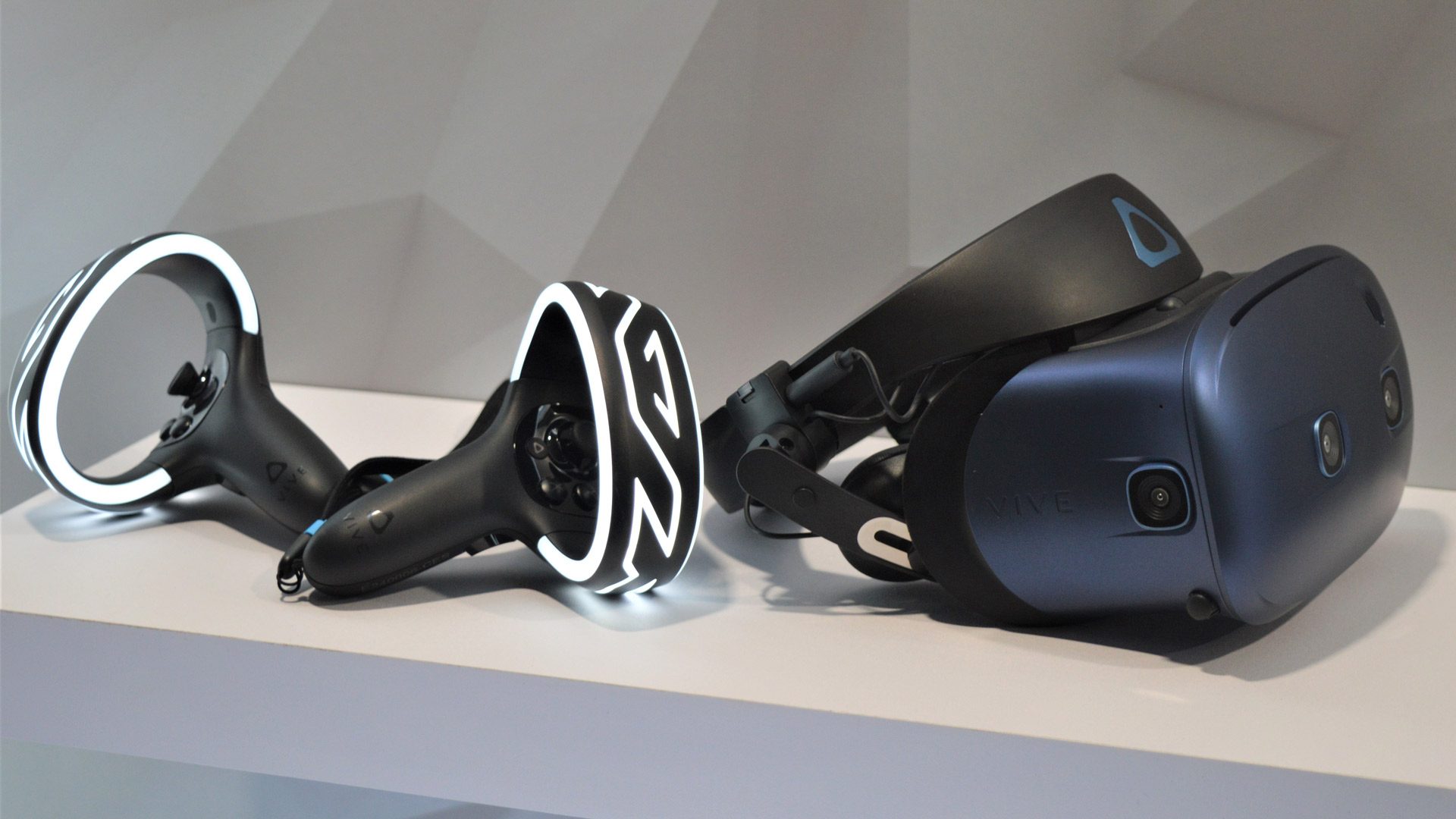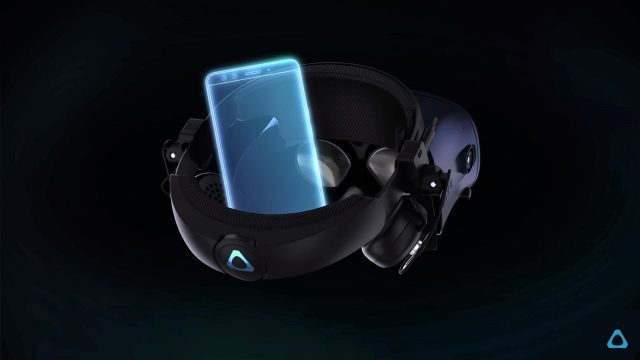Vive Cosmos is HTC’s newly unveiled PC VR headset that’s slated to release sometime this year. While it’s a tethered device meant to support PCs at launch, HTC teased that it could also be driven by a smartphone.
At its CES 2019 unveiling, a trailer (linked below) prominently showed Cosmos beside the outline of what appears to be an HTC U12+, pointing to the company’s intentions to eventually support mobile devices in addition to PCs.
Afterwards, HTC Vive America GM Dan O’Brien announced that they’d have more to share leading up to Cosmos’ launch, including “the kinds of form-factors it can expand into.”
An HTC spokesperson later confirmed with Road to VR that Vive Cosmos definitely has “additional ambitions” beyond its function as a tethered PC VR headset.
At this point it’s unclear how smartphone connectivity could be handled technically. HTC is staying mum on specs, although we speculate that Cosmos will likely connect to PCs via the VirtualLink connector, a new USB Type-C format that meets the data and power requirements of current and next-generation VR headsets.


HTC’s U12+ is a Snapdragon 845 device that supports DisplayPort over its USB-C. It’s not so far-fetched that the company could certify its current and upcoming flagship smartphones to drive the headset’s graphics similar to the way Samsung does with Gear VR. Although less likely, HTC could also certify a wider swath of smartphones from various manufacturers such as Google does with Daydream.
Note: conventional DisplayPort over USB-C can push 4K resolution at 60Hz. Depending upon the final resolution of the headset, which we still don’t know, that could be a higher number.
Again, HTC hasn’t put any specs on the table at this point, so it’s uncertain if the headset has Wi-Fi connectivity on-board either. However if it does, the company could go an entirely different route by letting smartphones stream VR content via Wi-Fi to Cosmos. That will invariably introduce additional latency, which is a major factor that a more direct connection would mitigate.
Food for thought: HTC Vive Focus already has the ability to stream SteamVR games via VRidge, an Android application supported by HTC which provides similar PC VR streaming functionality to Focus and other mobile headsets.
We’re hoping to learn more about Vive Cosmos in the coming months before dev kits head out in early 2019. Moreover, we still need to try it out, as the company didn’t allow demos at CES 2019.
Update (January 8th, 2019): Antony ‘Skarred Ghost’ Vitillo pointed out to us in the comments that HTC Vive Focus can use a modified version of the VRidge software. We’ve updated to include this, as HTC has seemed to support the software as a semi-official way of playing PC games on Focus.


